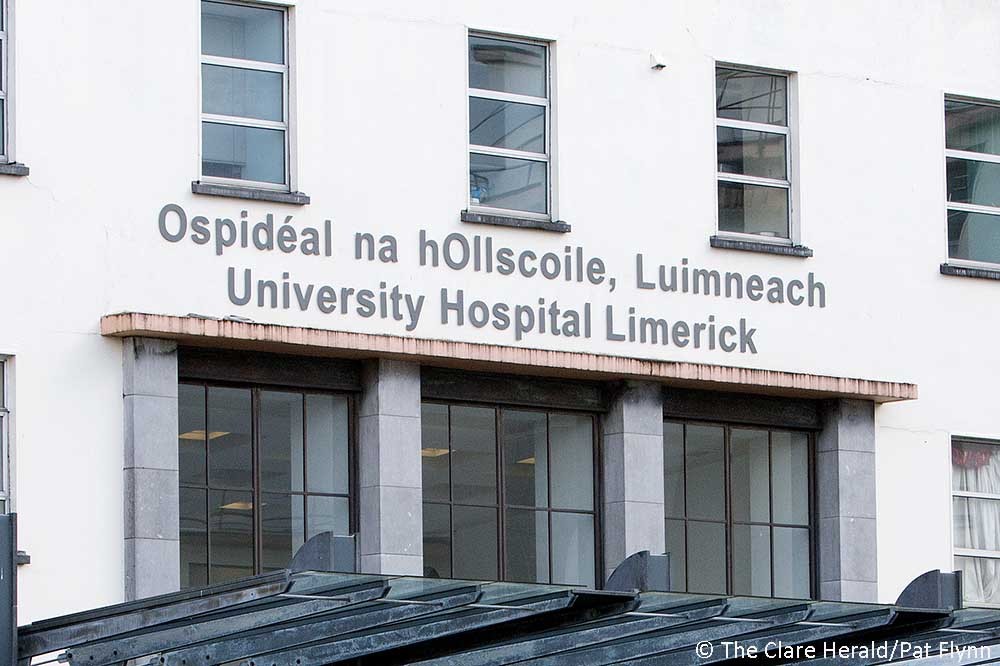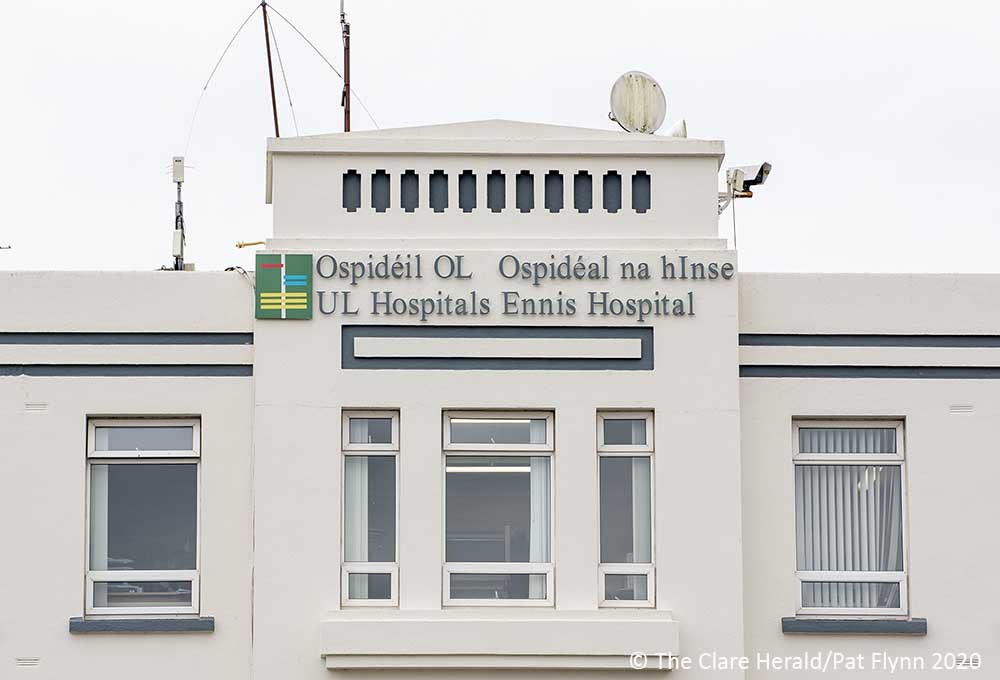
UL Hospitals Group is gradually resuming services across its six sites including Ennis General Hospital and patients are being advised of precautionary measures to take in advance of and during their time in hospital in the context of the ongoing public health emergency.
As part of our pandemic response, we took the decision on March 6th 2020 to defer almost all elective activity, including inpatient and day case surgery and outpatient appointments. Emergency and time-critical services have been protected throughout the pandemic and we commenced virtual clinics in many specialties for our outpatients.
While virtual clinics will remain a significant feature for the duration of the pandemic, many patients require a face-to-face consultation or a physical examination or investigation. Our outpatient clinics are now gradually increasing the number of patients attending in person across the Group.
Scheduled surgery as well as endoscopy and other diagnostic investigations have also recommenced in UHL, University Maternity Hospital Limerick, St John’s Hospital, Ennis Hospital, Nenagh Hospital and Croom Orthopaedic Hospital.
We are carefully scaling up these services in line with the national public health guidance and in a manner which optimises patient care while minimising risks to patients, staff and the wider healthcare system. In line with IP&C best practice and the new realities around physical distancing, this will mean fewer patients in waiting rooms and in clinical areas at any one time and fewer patients on theatre lists on any one day.

In advance of attending for an appointment or being admitted for a planned procedure, we are asking that patients take a number of measures in advance of or during their time in hospital.
These include the following:
– We may ask patients to cocoon or to self-isolate in advance of their procedure or appointment
– We may ask patients to consent to a COVID-19 test in advance of a planned admission
– We may ask patients to wear a face mask/other PPE or to change the face mask/face covering they are wearing on arrival
– We may ask patients to complete a COVID-19 questionnaire over the phone in advance of coming to hospital and to repeat same on arrival. Patients with symptoms of COVID-19 will be asked to stay home.
– We may ask patients to attend at less social hours to facilitate extended operating hours of services
– We may ask patients or those accompanying them to wait in their car until closer to their appointment time
– We may ask patients to attend another hospital for their procedure/appointment
In all cases, patients will be contacted in advance by letter, by phone or by text and patients asked not to attend unless they have recently heard directly from the hospital.
We ask that in the case of children attending for a procedure or appointment, they are accompanied by one adult only and that no siblings may attend. In the case of day surgery, persons accompanying the patient will not be permitted to wait in the hospital and will be asked to return once the patient has recovered.
The increase in activity coincides with Phase 3 in the Government roadmap on the reopening of society. However, the visiting ban remains in place across our six hospitals. We have commenced work on how visiting restrictions can be eased pending national guidance on same.
More information on the resumption of hospital services nationally and what we are asking of our patients is available here.
Colette Cowan, CEO, UL Hospitals Group, said: “We are very pleased that patients are again coming in for their appointments and for their procedures. Across society we have had to adapt to the challenges presented by COVID-19 and our staff are no different. During the pandemic, we have kept our emergency services open; we have re-imagined the physical environment; and we have adopted new ways of working so that by the second month of lockdown, we were back up to 50% of our usual outpatient activity, almost three in five of those appointments being completed virtually. Our theatre staff redeployed to support critical care and are now returning to their substantive posts as we scale up planned surgery.”
“We are also asking our patients to do things differently. The buy-in from our citizens in terms of the public health advice has been the single biggest factor in containing and suppressing COVID-19 in the community. Vigilance remains the watchword as acute hospitals stand up services. The capacity challenges faced by our hospitals in advance of the pandemic have only increased as a result of it. There are currently 122 beds under construction in UHL and Croom Orthopaedic Hospital however compliance with physical distancing will require us to close beds elsewhere. For the foreseeable future, we will need to reduce footfall in our hospitals and see fewer patients physically in our clinics and in theatre. We are also asking patients to consider all their care options – Injury Units, GP and GP out-of hours – before presenting to the Emergency Department and to use the phone where possible.”
Prof Brian Lenehan, Chief Clinical Director, UL Hospitals Group, said: “We are conscious that the unfortunate but necessary suspension of so much scheduled work as a result of the pandemic has been difficult on our patients. During the pandemic, we continued to operate emergency and trauma lists in theatre, including cancer patients. As we gradually scale up our services, we will be prioritising the sickest patients first in line with national guidelines and with the agreement of the clinical leads across the various specialties. It has been heartening in recent weeks to see more scheduled cancer and vascular cases in theatre, for example, and the increase in cardiology patients attending the cath lab.
“Across UL Hospitals Group we have worked hard to increase our in-house COVID-19 testing, to establish new pathways to keep patients safe, to protect our critical care capacity through the course of the pandemic and to date to minimise any nosocomial spread of COVID-19. In all of this, the safety of our patients and staff has been paramount and that will remain the case as we slowly and carefully increase services in the coming weeks,” Prof Lenehan said.